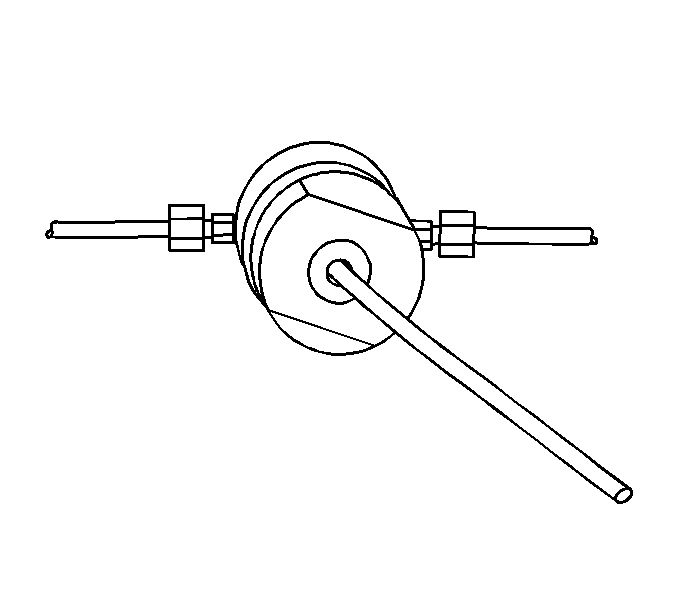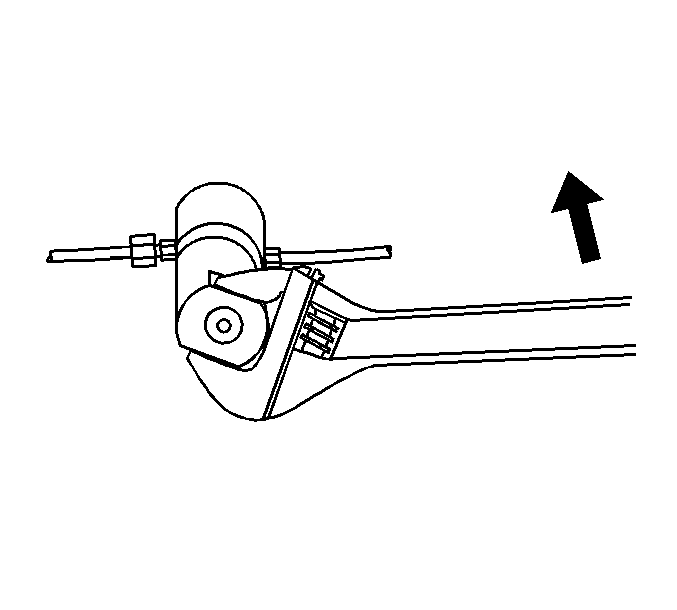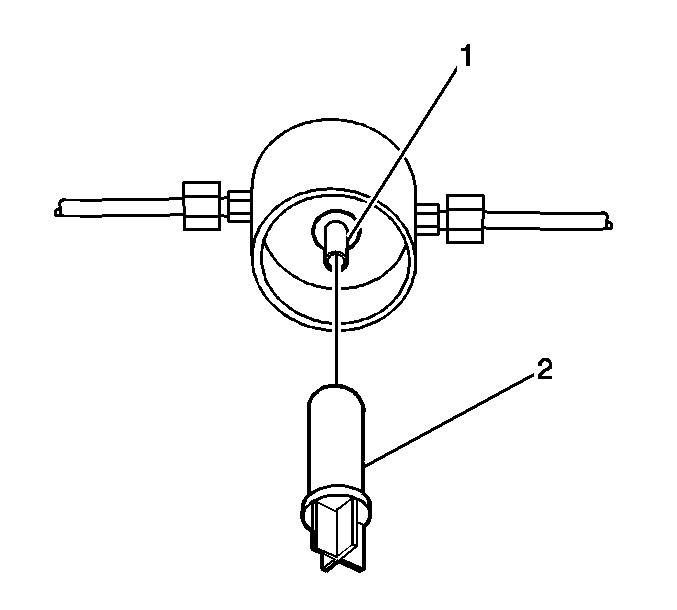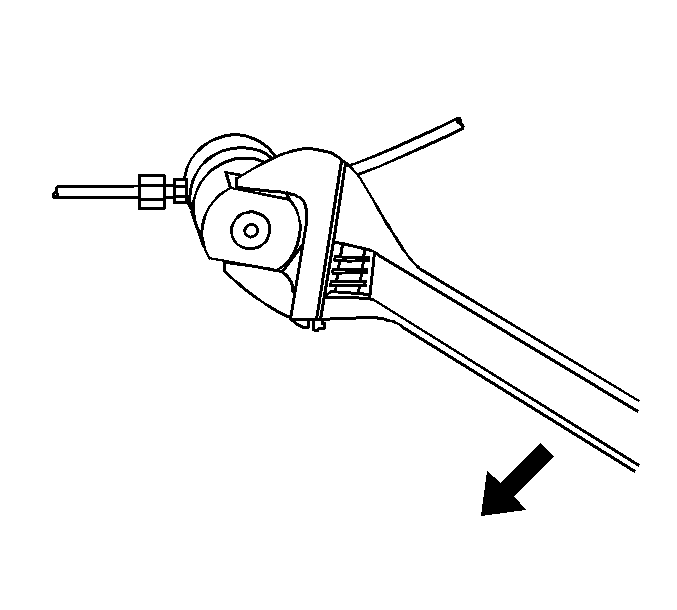For 1990-2009 cars only
Draining Procedure
- Relieve the CNG fuel system pressure. Refer to Fuel Pressure Relief .
- Raise and support the vehicle. Refer to Lifting and Jacking the Vehicle in General Information in the J Platform Service Manual.
- Slowly loosen the in-line CNG filter drain plug allowing any remaining CNG fuel pressure to escape.
- Remove the drain fitting and capture any fluids. Dispose of the fluid in a safe manner.
- Install the drain plug using a new O-ring. Refer to Maintenance Items in General Information for the correct O-ring part number. Lubricate the O-ring with petroleum jelly.
Caution: The Compressed Natural Gas (CNG) system operates at pressures up to 24820 kpa (3600 psi). Relieve the CNG fuel system pressure before servicing CNG fuel system components in order to reduce the risk of fire and personal injury.

Tighten
Tighten the drain plug to 48 N·m (35 lb ft).
Removal Procedure
- Relieve the CNG fuel system pressure. Refer to Fuel Pressure Relief .
- Raise and support the vehicle. Refer to Lifting and Jacking the Vehicle in General Information in the J Platform Service Manual.
- Loosen the in-line CNG filter housing.
- Unthread and remove the housing.
- Remove the filter element (2) from the in-line CNG filter assembly (1) using a pulling and twisting motion.
- Wipe out any oil or fluid residue from the inside of the filter housing.


Installation Procedure
- Push the filter element (2) onto the in-line CNG filter assembly (1).
- Install the filter housing into the in-line CNG filter assembly using a new O-ring. Lubricate the O-ring with petroleum jelly before installation.
- Cycle the ignition several times in order to build CNG fuel pressure.
- Inspect for fuel system leaks at all serviced fittings.


Tighten
Tighten the filter housing to 54 N·m (40 lb ft).
